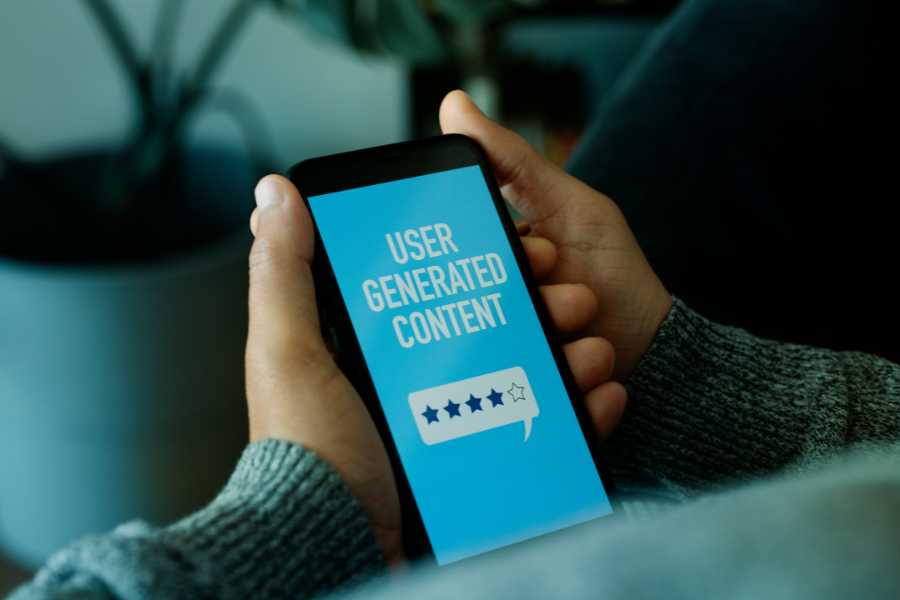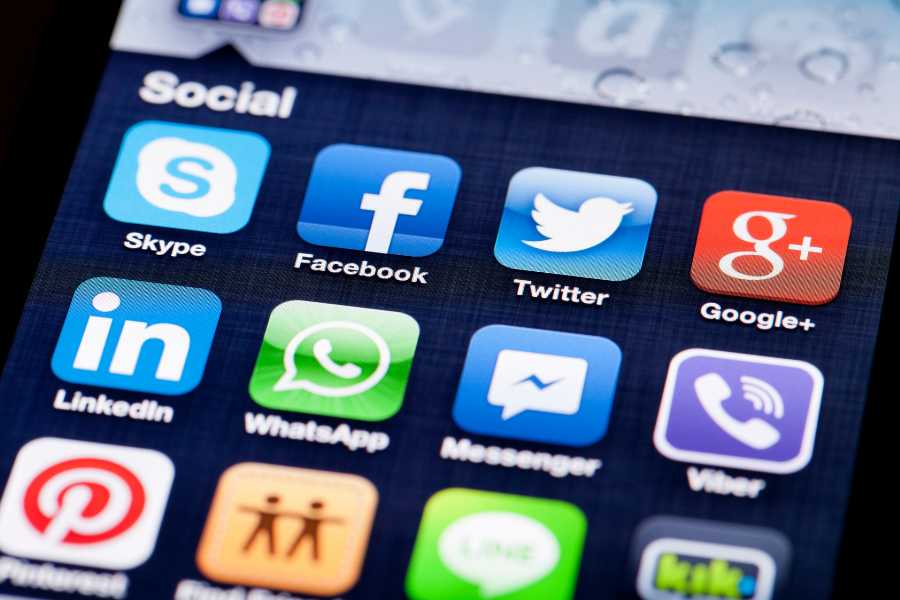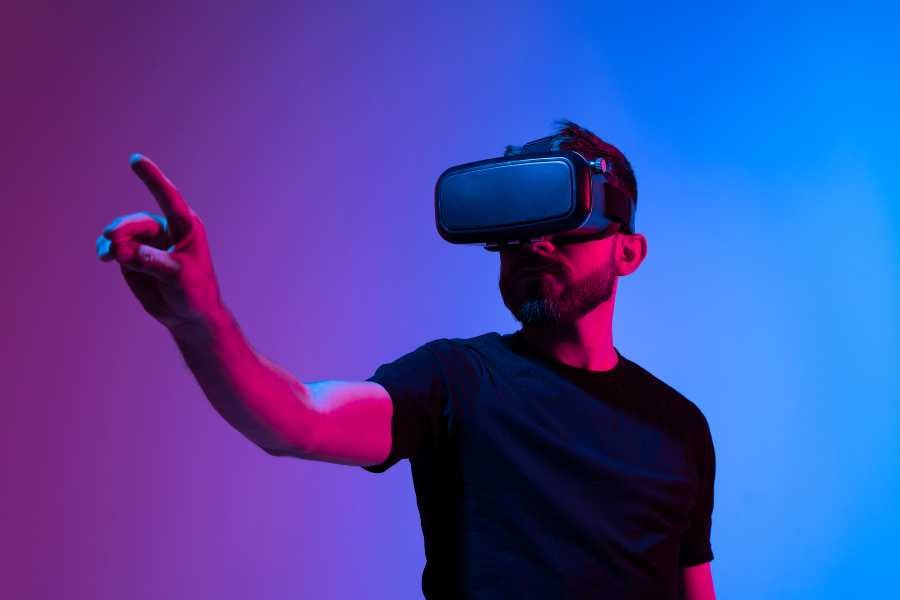Ready to catapult your business into the limelight by amplifying your brand awareness strategy?
In today’s competitive market, it’s not just about being seen — it’s about being remembered.
From leveraging influencer marketing to creating viral-worthy social media content, there’s an ocean of strategies to explore.
So, are you prepared to take your brand from being known to unforgettable?
Let’s jump in!
1. Partner with Micro-Influencers
Ditching the traditional celebrity endorsement route, brands today are increasingly looking to micro-influencers for a more personal, genuine touch.
Typically, these are individuals who, while not world-renowned celebrities, wield a significant influence within their niche communities.
With follower counts ranging from 1,000 to 50,000, their endorsement of your brand can have a surprisingly large impact.
Think of it as a word-of-mouth recommendation on steroids.
Here’s the real beauty: unlike high-profile influencers, partnering with micro-influencers won’t cost you an arm and a leg. A simple product gift or a small fee could do the trick.
Consider reaching out to fitness bloggers if you’re in the health and wellness space, or to local foodies for your new restaurant.
Remember, relevancy is key here. Their followers should align with your target audience for maximum impact.
2. Leverage User-Generated Content

In an era where customers are becoming increasingly skeptical of traditional advertising, user-generated content (UGC) can be a breath of fresh air.
UGC is any type of content, be it a tweet, Instagram story, blog post, or review, created by your customers about your brand.
An effective way to generate UGC is by creating social media campaigns or contests encouraging customers to share their experiences with your brand.
For example, a clothing brand could ask customers to post pictures of themselves wearing their products with a specific hashtag, say, #MyBrandStyle.
Such campaigns not only foster a community around your brand, but also provide you with a wealth of authentic content that can be shared on your channels.
3. Harness The Power of Tools
Social media management tools can be the Swiss army knife for your brand awareness campaigns.
With platforms such as Sprout Social, Hootsuite, and Buffer, you get a comprehensive suite to manage, monitor, and analyze your social media efforts.
Say you’ve launched a campaign on Twitter. How do you track its performance?
With these tools, you can easily monitor brand mentions, relevant hashtags, and engagement metrics.
Not stopping at just numbers, they also offer sentiment analysis — a measure of whether the buzz around your brand is positive, negative, or neutral.
What about content posting?
These tools allow you to schedule posts in advance, ensuring you consistently engage with your audience without the constant need to manually post content.
All in all, using a social media management tool allows you to keep your finger on the pulse of your brand’s digital presence, enabling you to make informed decisions and adaptations.
4. Engage Brand Ambassadors
Brand ambassadors — they’re your cheerleaders, your advocates, the custodians of your brand’s reputation.
These are your loyal customers who love your brand and are eager to spread the word. They’re the human faces that potential customers trust, making them a vital part of your brand awareness strategy.
So how do you empower these ambassadors? It’s simple.
Acknowledge them, appreciate them, and make them feel special.
For instance, you could feature their stories on your social media or blog, offering them a moment in the spotlight. Or, consider offering them sneak peeks into new products, exclusive discounts, or early access to sales.
When your brand ambassadors feel valued, they become even more invested in your success. And when they talk about your brand, others listen.
So keep them happy, and they’ll reward you with high brand awareness.
5. Create Platform-Specific Content

Let’s face it — not all social media platforms are created equal. Each one has its unique features, audience, and content preferences.
Understanding these differences and tailoring your content accordingly is key to maximizing your brand’s reach.
For instance, Instagram, with its visually rich interface, is perfect for showcasing stunning product photos, behind-the-scenes shots, or inspiring user-generated content.
LinkedIn, on the other hand, is the go-to platform for professional networking and thought leadership content. You could share industry insights, company news, or informative articles here.
Understanding the nuances of each platform allows you to create content that resonates with the specific audience.
So, take an hour to analyze your target platforms and create a tailored content strategy for each.
The result?
A broader reach, more engagement, and ultimately, greater brand awareness.
6. Initiate Podcasts
Podcasts have soared in popularity over recent years, providing an ideal platform for meaningful conversation and thought leadership.
By hosting or sponsoring a podcast that resonates with your target audience, you’re not just boosting brand recall; you’re positioning your brand as an authority in your industry.
Wondering how to get started? It’s easier than you might think.
You could start a podcast discussing industry trends, sharing tips and tricks, or even inviting guests for interviews.
Let’s say your company sells sustainable fashion.
You could host a podcast discussing sustainable practices in fashion, invite experts to talk about eco-friendly materials, or feature fashion influencers who champion sustainable fashion.
Podcasts offer a unique way to engage with your audience on a deeper level, build trust, and strengthen your brand image.
And the best part is, you can get started in less than an hour.
So grab a microphone, and start building those connections!
7. Invest in Experiential Marketing

Consumers today don’t just want a product or a service; they want an unforgettable experience. This is where experiential marketing steps in.
By designing unique, immersive experiences, you can leave a lasting impression that goes beyond conventional advertising.
For instance, consider the pop-up shop. They are temporary retail spaces that allow you to engage directly with your customers.
You could host a DIY workshop, offer exclusive previews of your new line, or organize an interactive product demo.
Or, you could take it a step further by offering virtual reality experiences — IKEA, for example, leveraged this technology to let customers virtually remodel their kitchens.
The key is to think outside the box and create moments that customers will associate with your brand, leading to increased brand loyalty and recall.
8. Utilize Video Ads
In the age of dwindling attention spans, visual content, especially videos, reigns supreme.
They’re engaging, easy to digest, and most importantly, they’re shareable. A well-made video can increase brand visibility manifold.
Start by creating short, crisp video ads.
Make them funny, emotional, or inspirational — the aim is to make them resonate with your audience.
You could create a behind-the-scenes video showing your company culture, a product tutorial, or customer testimonials.
A great example is the “Shot on iPhone” campaign by Apple, showcasing user-generated content to promote their product.
Remember, the goal is to tell a story, not to hard sell.
9. Make Data-Driven Decisions

Your brand strategy should be guided by facts, not hunches.
In today’s digital world, you have access to a wealth of data that can inform your decision-making. Conduct market research to understand current trends, customer behaviors, and preferences.
Use tools like Google Trends to identify what’s popular, or customer feedback tools to gauge what your audience thinks about your product.
You can also analyze your competitors’ strategies, their strengths, and areas where they’re lacking.
This insight will help you carve out a unique position in the market, ensuring your brand stands out.
In essence, data takes the guesswork out of the equation, enabling you to make informed decisions that will likely yield better results.
10. Narrate Your Brand Story
Every brand has a story to tell. Sharing this narrative can humanize your brand, forge emotional connections, and ultimately, amplify brand loyalty.
Think about the humble beginnings of your business, the challenges you’ve overcome, the milestones you’ve achieved.
What values do you stand for? What’s your mission?
The aim is to make your audience feel a part of your journey, your vision.
The trick here is to tell a story that’s not just about you, but also about your customers. Make them the heroes of your narrative.
After all, a brand is not just a logo or a tagline; it’s the sum of the experiences and emotions associated with it.
And what better way to evoke these emotions than through a compelling brand story?
11. Engage in Responsible and Sustainable Practices
The modern consumer is increasingly conscious about the impact of their purchases on the environment and society at large.
This is why a commitment to responsible and sustainable practices can work wonders in raising your brand awareness.
From sourcing materials responsibly to implementing fair trade practices, there are numerous ways your brand can make a positive impact.
But it doesn’t end there — make sure to communicate these practices to your audience effectively. This not only shows that your brand is committed to making a difference, but it also fosters a sense of trust and loyalty among your consumers.
Take Patagonia, for instance.
They are not just a clothing brand but a champion for environmental causes. By standing up for these values, they’ve not only garnered respect but also a fiercely loyal customer base.
So, take a leaf from their book, step up your ethical game, and watch your brand awareness skyrocket.
12. Make Your Mark in the Metaverse

As technology propels us into an era of increased digital connectivity, a new frontier has emerged — the Metaverse. It’s an expansive digital universe, a collective virtual shared space, that’s created by the convergence of physically virtually enhanced reality.
With its potential for immersive experiences and social interactions, it presents a unique opportunity for brands to carve out a distinctive presence.
Instead of merely showcasing your products or services, in the Metaverse, you can provide experiences.
Imagine a fashion brand that opens a virtual store where customers can design, try on, and purchase clothes for their avatars.
Or perhaps a car company that creates a virtual test-driving experience.
In the Metaverse, the boundaries of reality are redefined, and your brand can create moments that are not just memorable but also shareable.
Additionally, the Metaverse can enhance your brand storytelling.
Think interactive, 3D narratives that consumers can step into, experiencing your brand in a way that was previously inconceivable.
But remember, the goal isn’t just to create a cool virtual experience.
Your presence in the Metaverse should align with your brand’s values and mission. It’s about forging meaningful connections with your audience in a new, digitally immersive way.
Unleashing the Power of Your Brand Awareness Strategy
We get it — it can feel like climbing a mountain, this whole ‘boosting your brand awareness’ business.
It’s tricky, but hey, remember the gold at the end of the rainbow? The ideas shared here, they’re your map to that treasure.
Every new strategy you implement, you’re one step closer to becoming a brand that’s on everyone’s lips.
So, chin up, step forward and start making your brand unforgettable.
Here’s to your brand being the talk of the town —- you’ve got this!
The post 10+ Practical Brand Awareness Strategies for 2023 (& Beyond) appeared first on Smart Blogger.

No comments:
Post a Comment